Welcome to the first newsletter from “Bread for My Teeth.” I’m Simonetta, co- owner of Ida Restaurant in Queens Park, and I’m also a novelist, memoirist and translator. “Bread for my teeth” is a translation of an Italian expression I’ve always, liked, pane per i miei denti, meaning a worthy antatogonist, or, you’ve got this! It refers to a task which you find hard, but ultimately doable, because it plays to your strengths; while, conversely, non è pane per i tuoi denti, “it’s not bread for your teeth”, could be translated as “you’re not cut out for it”, or “steer well clear.”
Being a restaurateur, did NOT play to my strengths, especially in the beginning. I was a novelist with three small children: all I craved was peace and quiet and a corner in which to write. Instead, I found myself flung into a chaotic, outward-facing world, learning everything about this strange new life on the job. My involvement in Ida, was only meant to be for a year. The restaurant was Avi’s project, a long-held dream, and the plan was that I was just going to help him out with the fun parts. Finding the premises, choosing the name (Ida, after his mother, who taught him how to cook), and decorating the interior. Instead, along came the global recession of 2008, and suddenly we were fighting for the restaurant’s very survival.
In those years, we sometimes we didn’t have a single booking in our reservations diary; the roof leaked, we had no money to fix it, and the chef’s salary was more than our entire family’s income combined. Unsurprisingly, in all of that worry and uncertainty, I completely lost my way as a writer. How could I justify such an effete activity as writing, when our world was crumbling around us? I couldn’t have both, I reasoned. There were simply not enough hours in the day to be a novelist and a restaurateur, especially with three young children in the mix.
As a result, I rarely sat down at my desk in those years, unless it was to pay suppliers, plead with creditors, and shuffle around our meagre table plan to make the dining room appear less bleak. Though of course I didn’t give up writing. At least not completely. The part of my brain, of any writer’s brain, which is always “on”, transposing images into words, squirelling away snippets of conversations for future use, never entirely shut up shop. The novel I had been working on may have lain untouched in my drawer, but each night, when I returned home to a slumbering house, I would scribble down observations of things I had witnessed during service. The tiny, and not so tiny, dramas on both sides of the pass, the way customers behaved when they were hungry or tired, the almost balletic dance of the chefs in the kitchen. And yet, in some respects - and certainly with the benefit of hindsight - that difficult time was one of the most rewarding periods of my life. It was pane per i miei denti: crunchy, intractable, but turns out my teeth were up to it.
Ten years later, those notes became the basis of my memoir, Ida at My Table, which I had originally envisioned as a cookbook interspersed with charming vignettes about Ida, my mother in law’s, life in rural Italy. Instead, as I began to write, it became clear that I couldn’t continue to hide behind the legacy of a woman who died in 1994, long before we opened our restaurant. The story of of “our” Ida was also our family’s story, and the story of what it meant to operate in a space in which you hadn’t come up through the ranks. Yet, being hospitality outsiders brought its own kind of clarity. Our ignorance made us question certain seemingly immutable kitchen hierarchies as well as the kind of awful behaviour that had been normalised by bad boy TV chefs. Besides, in some ways that world did feel familiar. Growing up in the UK as a child of deracinated foreigners had always felt like standing on one of those snaky articulated connectors between train carriages; the ground sometimes felt unsteady beneath your feet, but, on the up side, you never felt boxed in to a single reality, there was a plurality to your view.
In this newsletter, I want to share the joys of that plurality. Of being a neophyte restaurateur who grew to love the kitchen and the particular glow of a room full of happy diners. I want to write about the idea of community in one of the most atomised cities in the world. We thankfully live in (mostly) mixed neighbourhoods in London, and yet here, even in the “wrong” bit of Queens Park, there are residents who are drawn, like aspirational homing pigeons, to shop, eat and drink the the more salubrious bits of our area. I’m not too naive to recognize that places like Ida are part of the problem. Without doubt, we contributed to the gentrification of Kilburn Lane, which means, especially in a cost of living crisis such as the one we are living through, operating a restaurant with west London prices must appear like a slap in the face to some of our neighbourhood. I want to write honestly about our relationship to our community, as well as discuss some of the very real issues facing all restaurateurs. The problem of no-shows, of minimum spends, of paying in advance for a meal as though it were a ticket to a show. I will also write about books I have enjoyed, as well as the changing seasons of my beloved Serpentine where I swim each morning. I will publish recipes from Ida; the fancier ones devised by our chefs, along with the dishes we eat on repeat at home. And I hope to connect with as many of you as possible who like food and reading and sharing ideas.


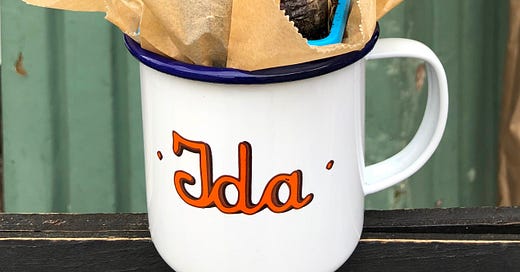



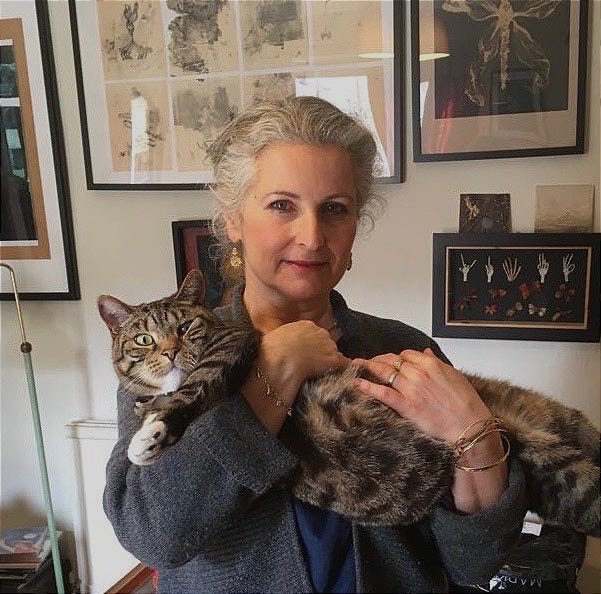
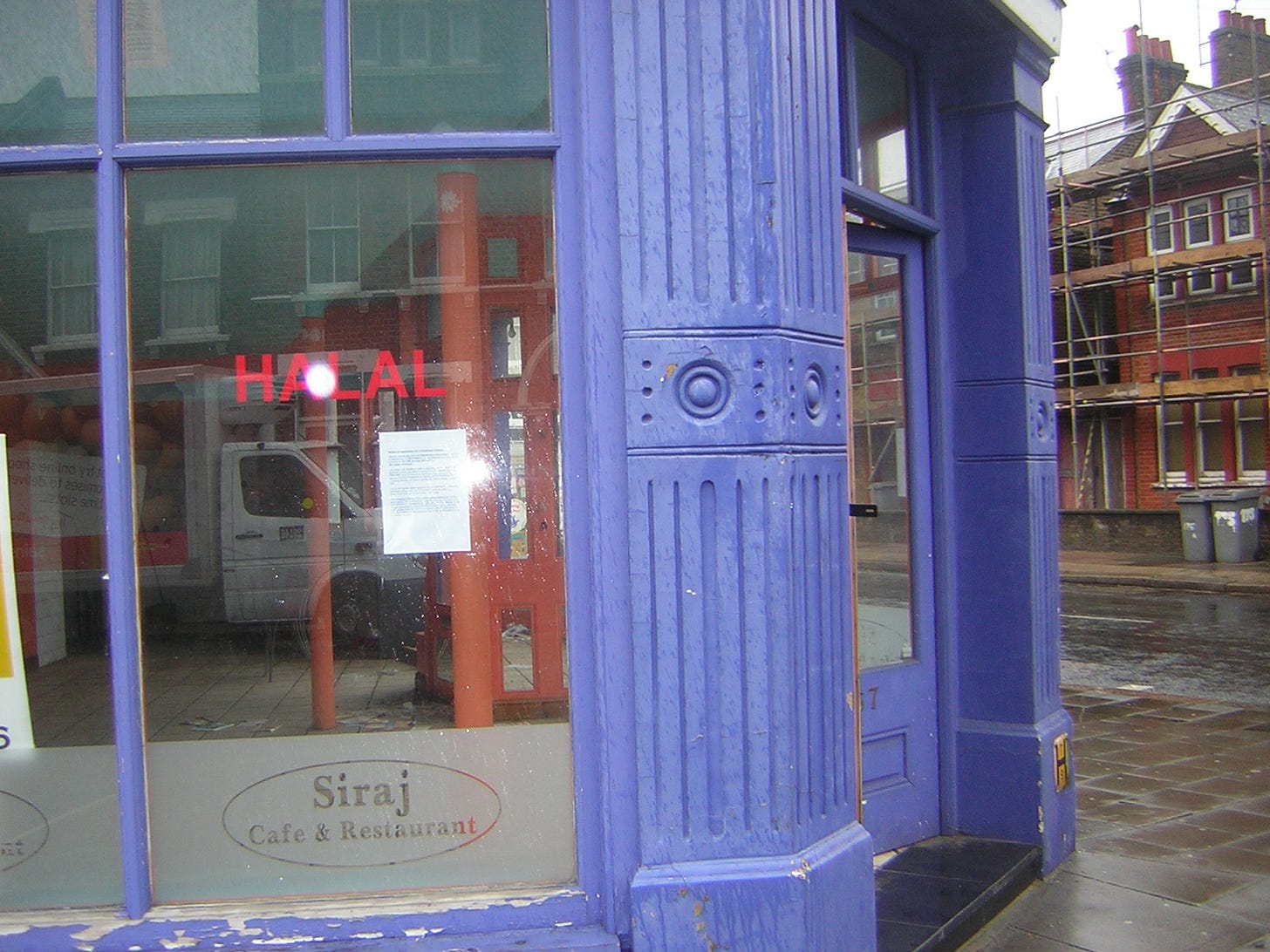
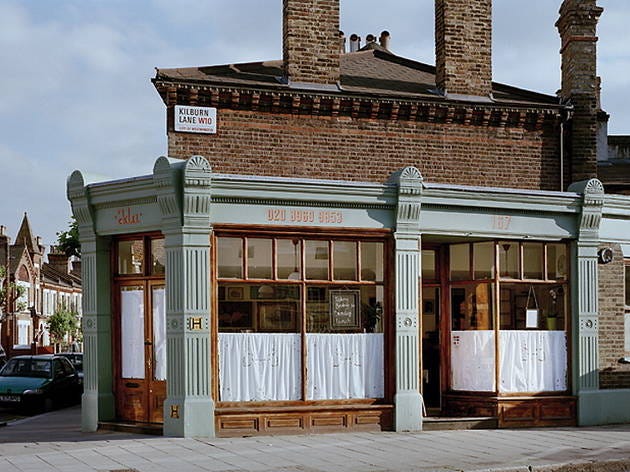
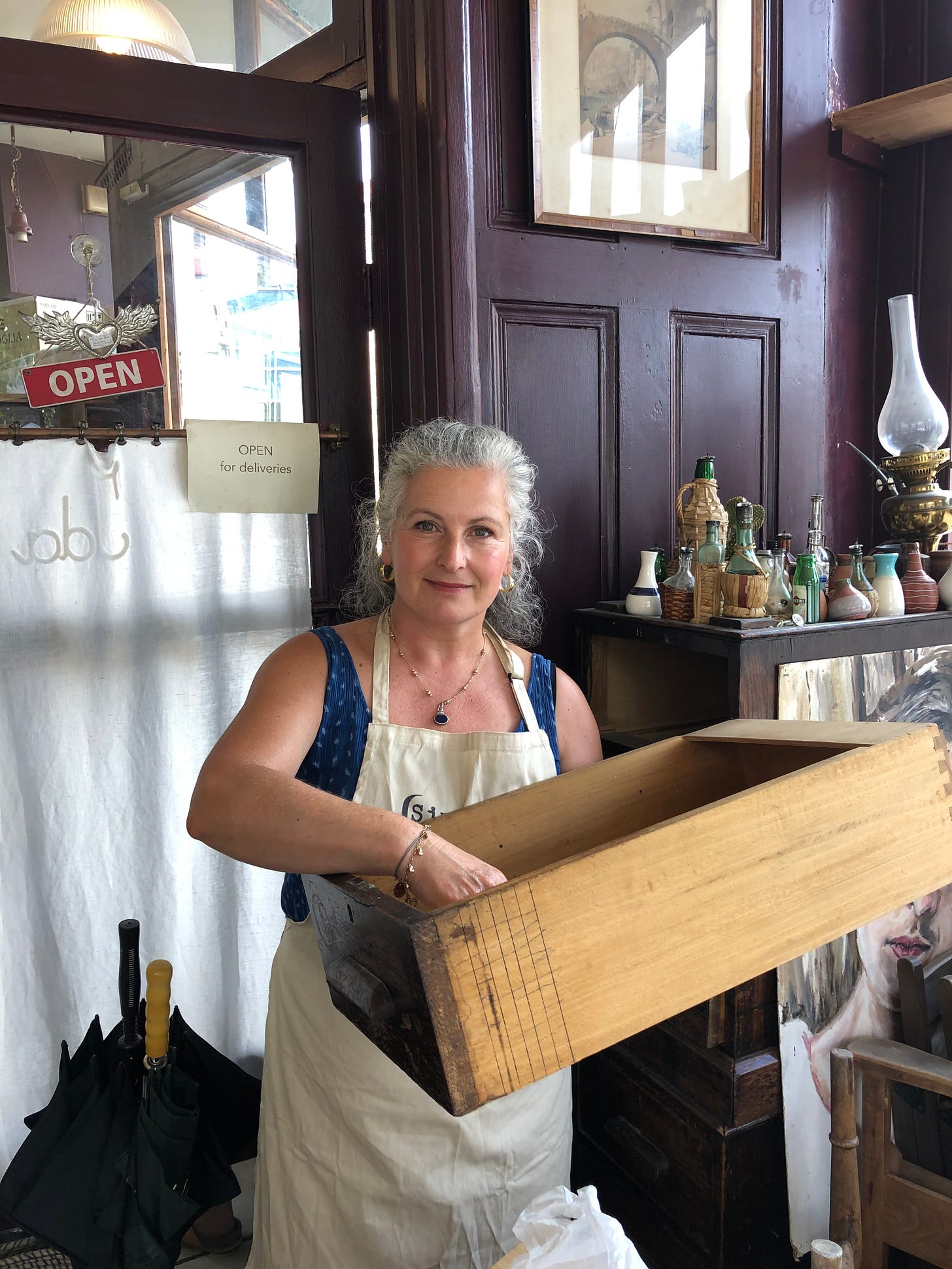
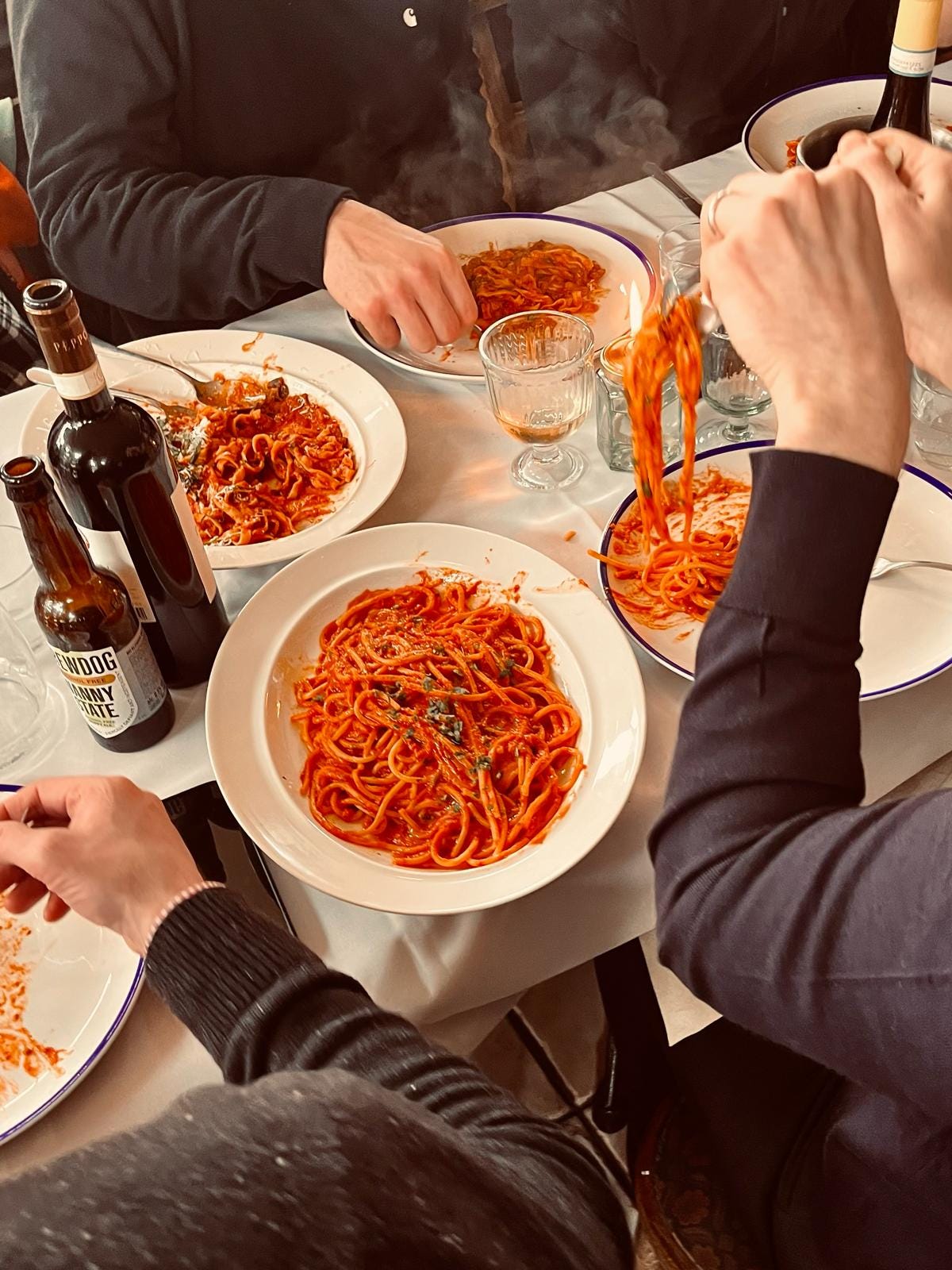
You're just wonderful Simonette! I think my sons get fed up with me always saying how amazing you are! I wish I had some of your energy and enthusiasm!
Hi Simonetta, I read a review of your book ‘Ida at my table’ in the Guardian and promptly bought it and devoured it. Fabulous book. Loved it that it captures the chaos of restaurants and, really, all hospitality. I was hoping you would talk more about your time in Israel - I was your room mate on the Lohamei Ha ga tarot kibbutz (outside of Nahariya) and wondered I would ever cross paths again with you. Glad to see you are living a great life.